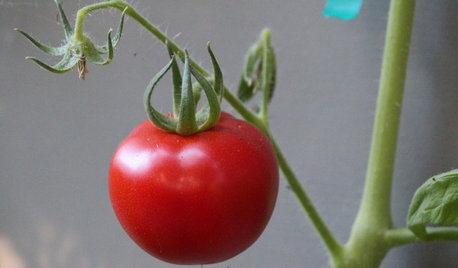Do Marigolds repel rabbits in vegetable beds?
linnea56 (zone 5b Chicago)
15 years ago
Featured Answer
Sort by:Oldest
Comments (37)
bigdaddyj
15 years agoshebear
15 years agoRelated Professionals
Camas Landscape Architects & Landscape Designers · Milwaukee Landscape Architects & Landscape Designers · Clermont Landscape Contractors · McKinney Landscape Contractors · Framingham Landscape Contractors · Fridley Landscape Contractors · Wentzville Landscape Contractors · Beloit General Contractors · West Mifflin General Contractors · Austin Decks, Patios & Outdoor Enclosures · Cape Coral Decks, Patios & Outdoor Enclosures · Littleton Decks, Patios & Outdoor Enclosures · Oswego Decks, Patios & Outdoor Enclosures · San Antonio Decks, Patios & Outdoor Enclosures · Highland Decks, Patios & Outdoor Enclosureslinnea56 (zone 5b Chicago)
15 years agolightt
15 years agorexx
15 years agopiotr01
15 years agobigdaddyj
15 years agolinnea56 (zone 5b Chicago)
15 years agolinnea56 (zone 5b Chicago)
15 years agoaninocentangel
15 years agocarolyn137
15 years agobigdaddyj
15 years agoshebear
15 years agooldroser
15 years agofarkee
15 years agolinnea56 (zone 5b Chicago)
15 years agofarkee
15 years agocarolyn137
15 years agotamik
15 years agocindy-6b/7a VA
15 years agolinnea56 (zone 5b Chicago)
15 years agolinnea56 (zone 5b Chicago)
15 years agotriple_b
15 years agopaul_
15 years agotreeinnj
15 years agovera_eastern_wa
15 years agojwhooper
15 years agojames_in_lapine
15 years agotimmadler_yahoo_com
12 years agoracingwillie
12 years agoRichard Gibson
7 years agoSeysonn_ 8a-NC/HZ-7
7 years agoRichard Gibson
7 years agopetalique
7 years agogorbelly
7 years agoDonna R
7 years ago
Related Stories

EDIBLE GARDENSGarden BFFs? Why Your Vegetables Are Begging for Companion Plants
Foster friendships among plants for protection from pests, pollination support and color camaraderie
Full Story
MOST POPULARHow to Start a Cool-Season Vegetable Garden
Late summer and late winter are good times to plan and plant cool-season crops like salad greens, spinach, beets, carrots and peas
Full Story
GARDENING GUIDES12 Tips to Help You Start an Edible Garden
Get on your way to growing your own vegetables with a raised bed or a few containers on the patio
Full Story
EDIBLE GARDENSHow to Grow Your Own Sweet Summer Crops
This guide will help any gardener get started on growing the freshest warm-season veggies and berries for summer
Full Story
FARM YOUR YARDIf You Have Room for Only One Summer Crop ...
Get an edible that’s long on flavor even if you’re short on space, with a long-time gardener’s favorite picks
Full Story
GARDENING GUIDES10 Easy Edibles for First-Time Gardeners
Focus on these beginner-friendly vegetables, herbs, beans and salad greens to start a home farm with little fuss
Full Story
FARM YOUR YARDHow to Grow Vegetables in Containers
Get glorious vegetables and fruits on your patio with a pro’s guidance — including his personal recipe for potting mix
Full Story
FARM YOUR YARDGrow a Kitchen Garden in 16 Square Feet
Got a sunny 4-by-4 space? You can make meals more interesting with your own vegetables and herbs
Full Story
FRONT YARD IDEASWelcome Edibles Into the Front Yard for Fresh Food and More
Give your front yard design a boost and maybe even make new friends by growing fruits and vegetables
Full Story
EARTH DAY5 Ideas for a More Earth-Friendly Garden
Consider increasing the size of garden beds, filtering rainwater and using plants to reduce energy use
Full Story





HoosierCheroKee